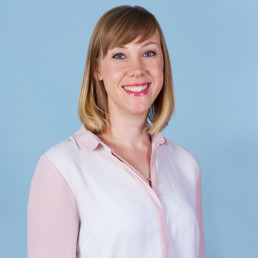
Written by Alix Robertson
Associate at The Centre for Education and Youth
A decade ago, a Canadian professor of human evolutionary biology named Joseph Heinrich published a paper with the curious title: ‘The weirdest people in the world?’.
The study explored how behavioural science was dominated by the perspectives of researchers who drew on samples from Western, Educated, Industrialised, Rich, and Democratic (WEIRD) societies. It has often been implicitly assumed that the results produced from working with these groups are as representative of the human species as any other population.
But are researchers justified in making this assumption? Heinrich and his colleagues, psychologists Steven Heine and Ara Norenzayan, pursued this question by carrying out an empirical review of studies involving comparative experimentation on important psychological or behavioural variables. While not all research is created equal, the study was published in the international journal ‘Behavioural and Brain Sciences’, as well as in the renowned British scientific journal ‘Nature’, and Henrich went on to develop the idea into a book that was released this year.
The researchers reported that findings based on ‘WEIRD’ subjects are actually particularly unusual, compared with the rest of the human species, across a range of areas including fairness, cooperation, reasoning styles and self-concepts. The study suggested that members of WEIRD societies, including young children, are among the least representative populations when it comes to generalising about humans. Heinrich concluded that “we need to be less cavalier in addressing questions of human nature on the basis of data drawn from this particularly thin, and rather unusual, slice of humanity”.
Given these findings, the team at CfEY are keen to use our expertise in research to support Diverse Educator’s goal of improving diversity, equity, and inclusion in education. To do this we will be acting as ‘ambassadors’ helping DiverseEd to establish its own research strand, made up of studies carried out by or focusing on groups within DiverseEd’s nine categories of protected characteristics – and beyond.
To kick start this work we have contributed some of our existing research to seed the collection and we look forward to supporting DiverseEd in growing this bank in future.
- Encountering Faiths and Beliefs: The role of Intercultural Education in schools and communities – a report with Three Faiths Forum (now The Faith & Belief Forum) outlining the key principles of Intercultural Education and offering insights into how these principles can be adapted to suit different settings’ needs.
- Special educational needs and their links to poverty - a report for the Joseph Rowntree Foundation showing close links between children having SEND and growing up in poverty; as well as the additional barriers these children face in accessing the support they need.
- Ethnicity, Gender and Social Mobility – a report for the Social Mobility Commissionin collaboration with Education Datalab, which explores how ethnicity, gender and poverty interact to support or constrain young people’s social mobility.
- Progression to University by Gypsy, Roma and Traveller Pupils - a report in partnership with Kings College London’s Widening Participation department, which reveals the barriers ‘at every level’ that combine to make Gypsy, Roma and Traveller pupils one of the most under-represented groups in UK universities.
- A Place to Call Home: Understanding Youth Homelessness – research undertaken in partnership with the Sage Foundation, looking at how youth homelessness and education interact, and different ways in which the education system can support young people at risk of becoming – or who are – homeless.
- Schools and Youth Mental Health: A briefing on current challenges and ways forward – a report with Minds Ahead examining the scale and severity of the UK’s Youth Mental health crisis.
- ‘Boys on Track’: Improving support for white FSM-eligible and black Caribbean boys in London - a report with the Greater London Authority looking at how support for white free school meal-eligible and black Caribbean boys across London can be improved.
- Special or Unique - a report from Disability Rights UK and CfEY that explores young people’s attitudes towards disability and young disabled people’s experiences of school.
- Representation, engagement and participation: Latinx students in higher education - a report with King’s College London, examining the representation, engagement and participation of Latinx students in higher education.
We hope that these examples of our work will inspire others to join in with this exciting initiative. At CfEY we apply a critical lens to everything we do, and while anyone who is interested will be free to submit their research to the collection, we encourage the sharing of robust findings. By contributing quality work on the important themes that DiverseEd spotlights, you will be helping to build up a growing bank of studies that will encourage readers to think carefully about diversity and equality, and how they can drive improvements in representation.
Watch out for two events Diverse Educators (with support from the CfEY) will be running early next year to introduce the DiverseEd research strand.

